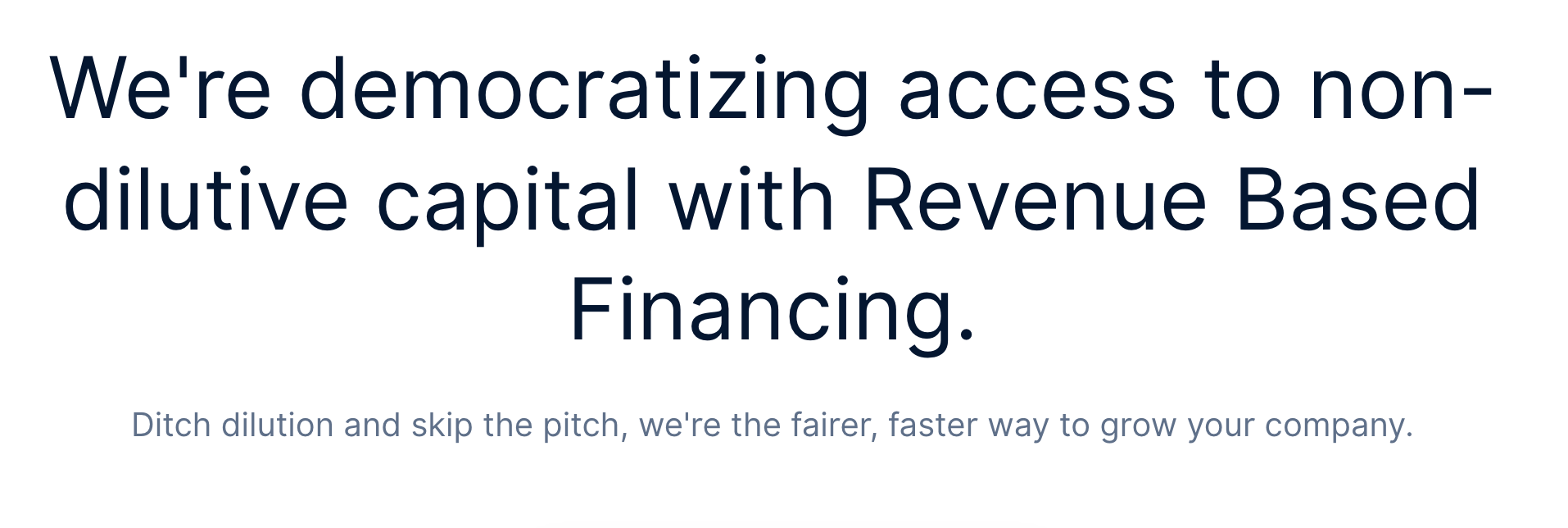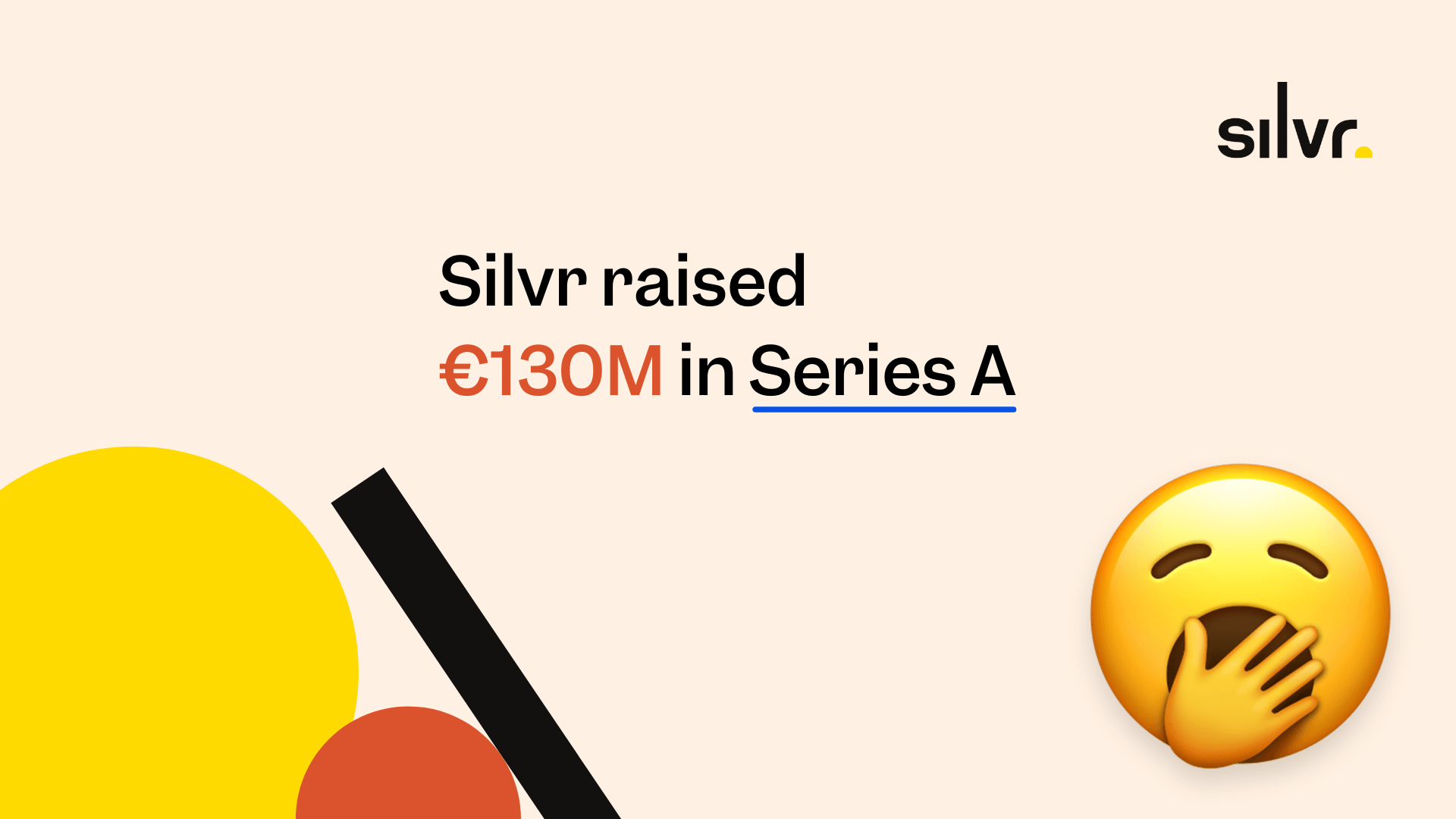Parisian revenue-based financing platform Silvr has raised €130 million in a Series A round, with the capital to be used to further develop the “operating System for financing digital companies” with the firm planning to recruit 100 employees over the coming year.
Now, before we get too excited and start throwing around words like “number 1” and ‘largest fundraising operation in the Revenue Based Financing (RBF) sector in Continental Europe” and “imported into Europe Revenue Based Financing, the "next big thing"” (all terms the company chose to use in the news release) let’s take a step back and note that this €130 million is comprised of €18 million in equity funding and €112 million in debt funding.
As I’ve mentioned in previous revenue-based financing announcements, there’s a ton of money floating around the tech ecosystem these days. If you’re after hard numbers, I direct you to my colleague Andrii’s awesome breakdowns (TL:DR the European fintech scene had a banner year, raking in some €25 billion across almost 800 VC deals), but overall, one trend has become increasingly clear, it’s a buyers market. And by buyers, I mean startups.
Paris-based Silvr is now the newest player to try on the razzle-dazzle of some big numbers (of which, the majority is debt funding) and entice startups with a non-dilutive, here’s an advance on your future revenues, we just want to look at your books first and run it by our AI to ascertain a risk assessment, loan, and generate our own revenues by taking a cut.
Funny, in another world, this practice might have another word attached to it, and Jaws was a great film.
For your reference, here’s a handy, and ongoing chart I’ve been tabulating regarding the revenue-based financing players that has made the Tech.eu coverage.
| Name | Location | Turnaround time | Revenue Range | Pre-requisites |
| Karmen | France | < 48 hours | 40% ARR | - |
| Vitt | London/Berlin | < 24 hours | 100% ARR | ARR of £100,000 |
| re:cap | Berlin | < 48 hours | 50% ARR | |
| Ritmo | Madrid | < 24 hours | up to €3 million | |
| Requr | Amsterdam | < 24 hours | unspecified cap | MRR of €20,000 |
| Viceversa | Milan | < 72 hours | €10,000 - €1 million | |
| Wayflyer | Dublin | < 24 hours | $10,000 - $20 million | MRR of $20,000 |
| Silvr | Paris | < 24 hours | €10,000 - €10 million | MRR of €10,000 |
Much in line with every other player in the space, CEO and co-founder Nima Karimi explains the raison d'être behind Silvr, “As an entrepreneur for the past decade, I have been faced several times with the complexity of financing my startups. Banks are reluctant to grant bank loans to digital companies that do not have assets to provide as collateral. The complex and time-consuming journey of raising equity funds concerns only a handful of companies. I founded Silvr to democratise RBF in Europe, promote fairer access to capital and allow tens of thousands of entrepreneurs who create tomorrow’s services to unlock their growth potential."
Oddly enough, cross-town competitor Karmen’s landing page copy:

Silvr’s €130 million (€18 million equity/€112 million debt) Series A funding was provided by XAnge, Otium, Bpifrance, Eurazeo, ISAI, and saw participation from angel investors Alexandre Prot and Steve Anavi (co-founders of newly minted unicorn Qonto), Raphaël Vullierme (co-founder of Luko), Louis Chatriot (co-founder of Alma) and Pierre Dutaret (co-founder of Libeo).
Otium Capital’s Jérémie Bordier comments, “Silvr fills a real gap in the financing chain. In our business, we see everyday beautiful companies that the banks do not know how to finance and that unfortunately do not always fit our criteria. By offering modern financial products, adapted to digital companies of all sizes, Silvr enables companies to unleash their growth potential without impacting their capital.”
Because there aren’t others all competing for the same companies to loan money to?
And similar to the BNPL fintech mechanism, what happens if/when a loanee can’t make/defaults on agreed-upon payment terms?
I’ll go pop the corn, as this is a feature film just waiting to play out.




Would you like to write the first comment?
Login to post comments